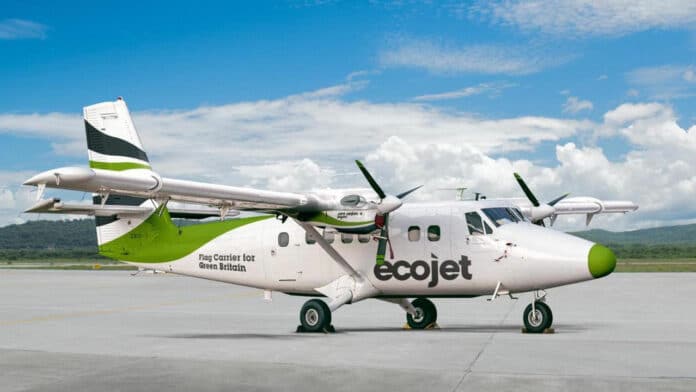The aviation industry is one of the largest carbon emitters, accounting for 3% of global CO2 emissions. Therefore zero-emission aircraft is the most efficient way to decarbonize the aviation industry. Many aviation companies are adopting electric planes to reduce carbon emissions.
UK-based Dale Vince, founder of Ecotricity, has announced the launch of Ecojet, the world’s first Electric Airline, powered by renewable energy. Dale has partnered with a team of aviation specialists and experienced pilot Brent Smith to set up Ecojet.
EcoJet’s fleet will consist of retrofitted conventional aircraft with hydrogen-electric powertrains. Reusing old planes will save 90,000 tonnes of carbon annually.
Using a hydrogen-electric engine with a one-hundred percent reduction in CO2 emissions and the only byproduct will be water, which can be captured and released into the lower atmosphere to avoid the harmful effects of contrails.
Further radical steps will be taken to reduce the aviation industry’s impact, including serving plant-based meals, eliminating single-use plastic, and issuing staff environmentally friendly uniforms.
Ecojet will initially launch using conventionally fueled planes to secure routes and obtain a license from the Civil Aviation Authority. Ecojet will launch with two different sizes of turboprop aircraft, one 19-seater and the other 70-seater. Once approved for service by the CAA, these aircraft will be retrofitted with hydrogen-electric powertrains.
Dale Vince says, “The question of how to create sustainable air travel has plagued the green movement for decades; Ecojet is by far the most significant step towards a solution to date. The desire to travel is deeply etched into the human spirit, and flights free of CO2 emissions, powered by renewable energy, will allow us to explore our incredible world without harming it for the first time.”
Flights across the UK will begin in early 2024, starting with the Edinburgh to Southampton route and expanding to mainland Europe shortly after, with long-haul flights planned. The first retrofit will be done in 2025, a year after the flights start.
